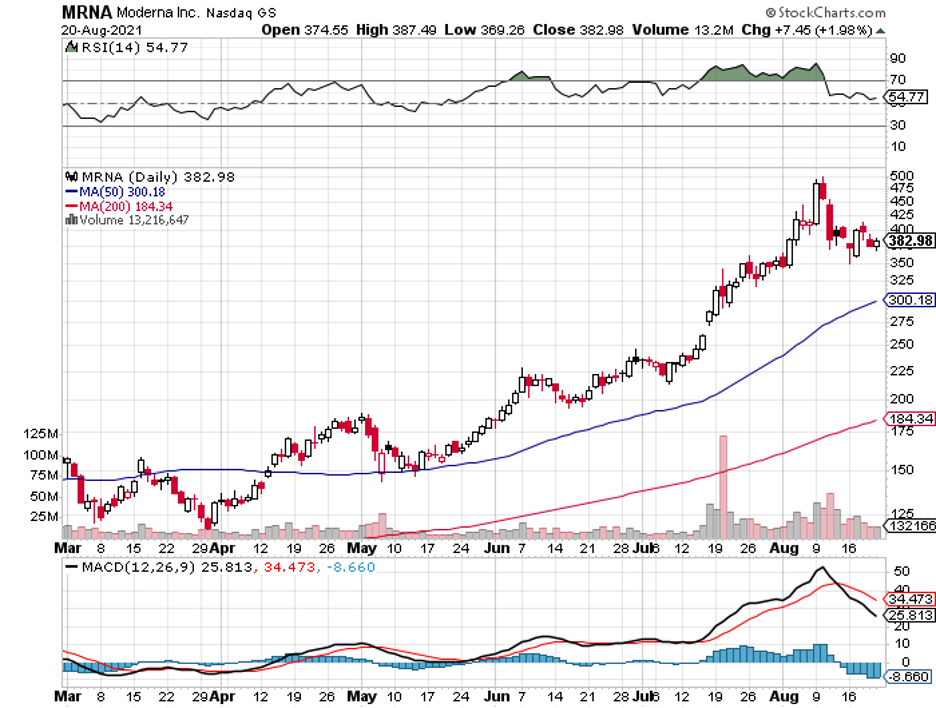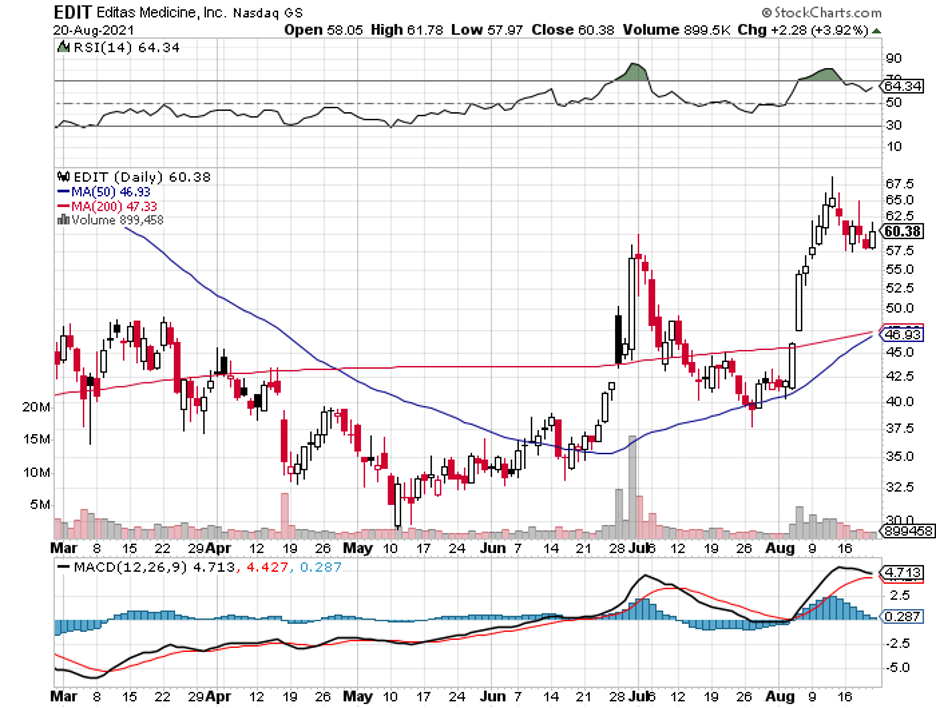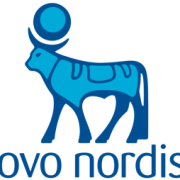A Gene Editing Pure Play Up for Grabs
Moderna (MRNA) is faced with a dilemma. And it’s a pretty good problem to face at this point.
The biotechnology company has a flourishing cash stockpile courtesy of the increasing demand for its COVID-19 vaccine, and it needs to find something to do with its overflowing cash.
As of the end of the second quarter, the company has already reported a cash position of over $12 billion—a figure that offers Moderna the flexibility to go on a bit of a shopping spree.
So far, Moderna has set its sights on expanding its internal R&D programs on top of the $1 billion share repurchase program approved by its board of directors.
However, the most exciting news is the company’s plans to potentially make acquisitions soon.
This is where Editas Medicine (EDIT) enters the picture.
Moderna has not been shy in declaring that it wants to add gene editing therapies to its growing pipeline along with nucleic acid technologies and mRNA.
While Moderna did not specifically mention Editas in its plans, the smaller biotechnology company looks to be the most promising candidate for acquisition, especially if the COVID-19 vaccine leader plans to jump right into the action in the gene editing space.
After all, there are only three companies in this segment with therapies under clinical testing: CRISPR Therapeutics (CRSP), Intellia Therapeutics (NTLA), and Editas.
CRISPR Therapeutics is practically joined at the hip with Vertex Pharmaceuticals (VRTX). Meanwhile, Intellia has a strong ongoing partnership with Regeneron (REGN).
That leaves Editas, which currently has no partner for its lead program, making it a prime buyout candidate for Moderna.
Editas is also the cheapest by far among all three clinical-stage biotech with $4.12 billion in market capitalization.
In comparison, CRISPR Therapeutics has a market cap of $8.93 billion, while Intellia has a market cap of $10.97 billion.
Moderna could find Editas’ lower market capitalization as an add-on, as it would allow the bigger biotech to not spend all its cash on the acquisition.
Moreover, Editas has another advantage.
While both CRISPR Therapeutics and Intellia only focus on CRISPR-Cas9, which is a way to locate and bind targeted genes, Editas has developed another option platform to do that.
Its alternative option, called Cas12, could boost the company’s capacity to develop gene editing treatments.
Simply put, its rivals only have one weapon in their arsenal, while Editas has come up with a dual-option CRISPR platform to double its chances of succeeding in gene therapy development.
If, for instance, Moderna does not acquire Editas, there are still a lot of options available for the bigger company.
One possibility is with Juno Therapeutics, which is part of Bristol-Myers Squibb (BMY), as the company is already collaborating with Editas on the development of genetically modified T-cells to come up with a powerful cancer therapy.
Meanwhile, if Editas’ pipeline and portfolio do not quite cut it with Moderna, another potential buyout candidate for this biotechnology giant is bluebird bio (BLUE).
While it’s not as advanced as CRISPR Therapeutics, Intellia, and Editas, bluebird bio has ongoing work with the likes of Bristol-Myers Squibb, Regeneron, Novo Nordisk (NVO), Gritstone Oncology (GRTS), and Inhibrx (INBX).
Other candidates that Moderna could take into consideration include Beam Therapeutics (BEAM), Verve Therapeutics (VERV), and Sangamo Therapeutics (SGMO).
Regardless of Moderna’s future decisions, its announcements that it plans to expand on the gene editing space could potentially spur other huge biopharmaceutical companies to explore their own business development agreements with up-and-coming biotechnology firms.
In fact, even if Moderna ends up not calling, there’s a big possibility that Editas could easily find others who will be interested in acquiring this pure play gene editing frontrunner.



